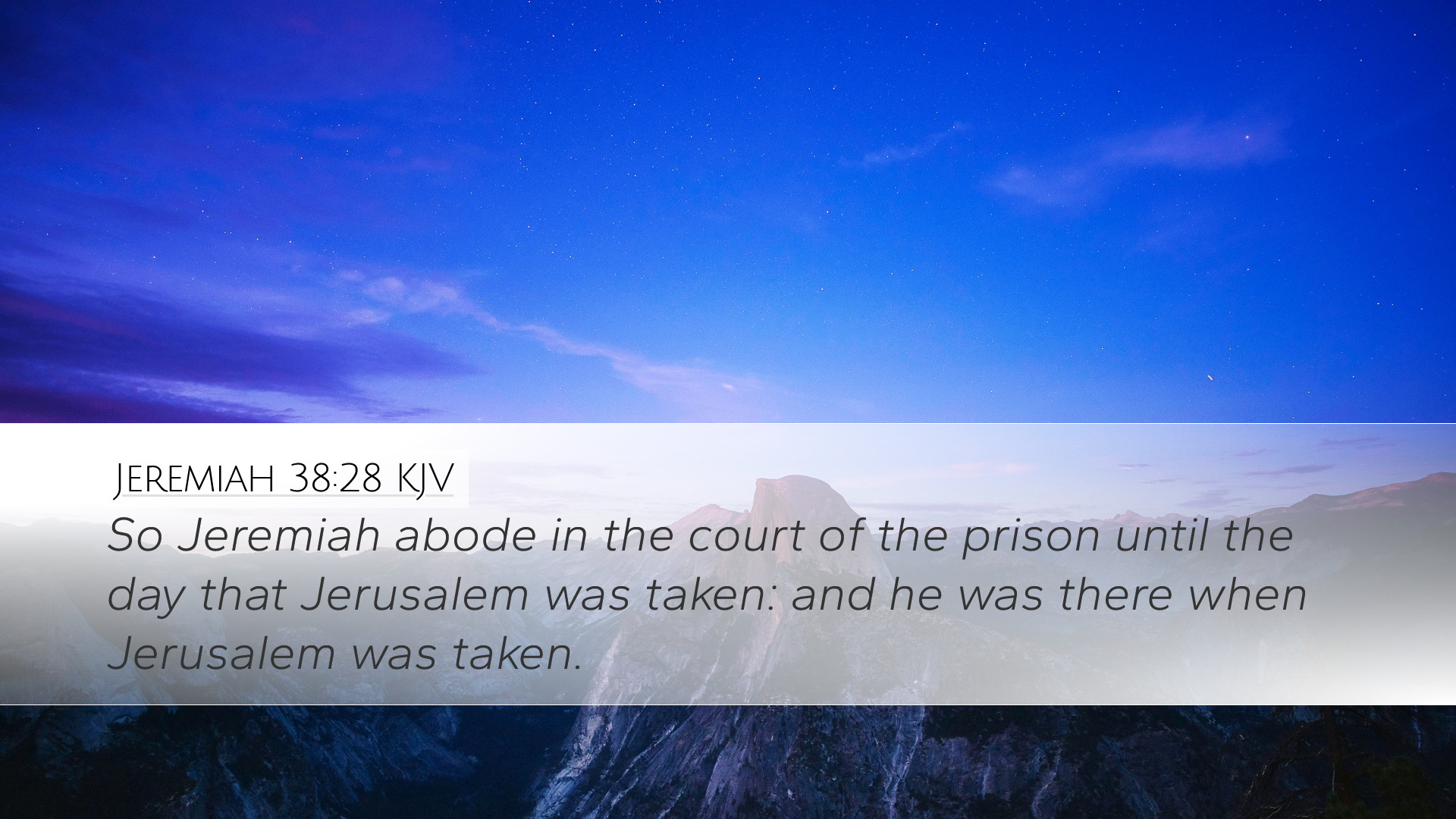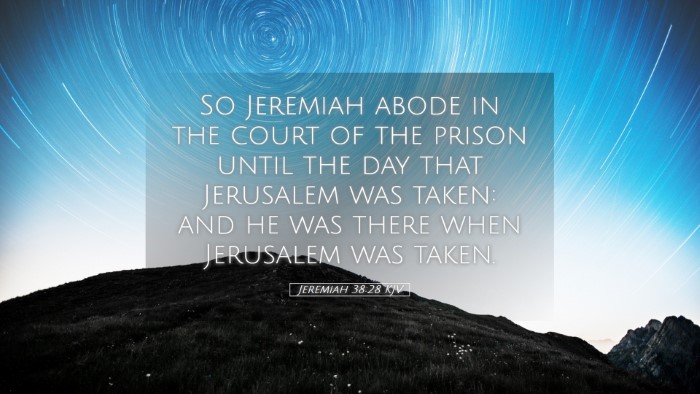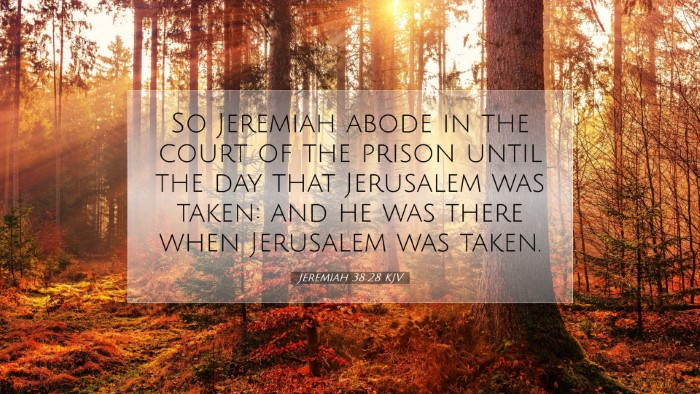Commentary on Jeremiah 38:28
Verse Context: Jeremiah 38:28 states, “So Jeremiah abode in the court of the prison until the day that Jerusalem was taken: and he was there when Jerusalem was taken.” This verse provides a pivotal moment in the life of the prophet Jeremiah during a critical period in Judah's history.
Overview
The prophet Jeremiah, known as the weeping prophet, endured immense suffering and personal trials throughout his ministry. This particular verse encapsulates his faithfulness amidst adversity and serves to highlight the broader themes of judgment and hope that permeate the book of Jeremiah.
Historical Context
Jeremiah prophesied during the final years of Jerusalem before its fall to the Babylonian empire. His ministry spanned the reigns of several kings, including Josiah, Jehoiakim, and Zedekiah, when the nation faced numerous calamities due to its persistent idolatry and disobedience to God.
- Political Climate: The political landscape of Judah was tumultuous, with threats from external forces such as Babylon and internal strife due to the leadership's corruption.
- Spiritual Condition: The people of Judah had turned away from God, indulging in practices forbidden by the Law, leading to divine judgment as proclaimed by Jeremiah.
Theological Insights
Jeremiah 38:28 sheds light on key theological truths relevant to pastors, students, and theologians:
- The Nature of Prophetic Ministry: Jeremiah’s survival in prison exemplifies the often-unpopular role of prophets who faithfully deliver God’s messages, regardless of personal cost.
- God’s Sovereignty: Despite the harrowing circumstances, Jeremiah’s presence in Jerusalem during its fall signifies God's overarching control over history and His prophetic plan.
- Hope Amidst Judgment: As the verse culminates the narrative of judgment, it simultaneously hints at the hope of restoration that Jeremiah would later proclaim.
Commentary Insights
Matthew Henry
Matthew Henry emphasizes the significance of Jeremiah's steadfastness. He notes that Jeremiah remained in the court of the prison, showcasing his resolve to continue serving God during the decline of his nation. Henry points out that Jeremiah faced disdain and rejection but remained unwavering, highlighting the theme of fidelity to God’s calling.
Albert Barnes
Albert Barnes illustrates that Jeremiah’s time in the prison court reflects the depth of his trials. He notes that the experiences of Jeremiah serve as a vivid reminder of the struggles faced by those who proclaim God’s truth. Barnes further suggests that the climax of Jerusalem’s fall represents not just God’s judgment, but also serves as a backdrop for future restoration, as God’s promises cannot fail.
Adam Clarke
Adam Clarke elaborates on the historical significance of Jeremiah’s prophecies and their eventual fulfillment. He draws attention to the courage of Jeremiah, who, despite the threats to his life, remained committed to conveying the word of the Lord. Clarke argues that the prophet serves as a type of Christ, exhibiting qualities of endurance and resilience.
Practical Applications
For contemporary believers, the lessons drawn from Jeremiah 38:28 can inform various aspects of daily faith practice:
- Endurance in Trials: Just as Jeremiah remained faithful in adversity, believers are encouraged to uphold their faith in challenging times, trusting in God's plan.
- Prophetic Voice: Christians are called to be voices for truth in a world often opposed to God’s commandments, mirroring Jeremiah's courage.
- Hope and Restoration: Understanding that judgment is not the end, but a step towards restoration can foster hope and resilience among the faithful.
Conclusion
Jeremiah 38:28 encapsulates a significant moment in the prophetic ministry of Jeremiah, marked by his commitment to the Lord amidst unprecedented turmoil. Insights from public domain commentaries provide a rich understanding of how this verse not only reflects historical and theological truths but also offers timeless applications for modern adherents of the faith.
As pastors, students, and theologians delve into this verse, they are reminded of the importance of faithfulness, the promise of God's sovereignty, and the ultimate hope that lies in restoration—even after judgment. Such reflections encourage a profound understanding of God's word and its relevance in the lives of believers today.


